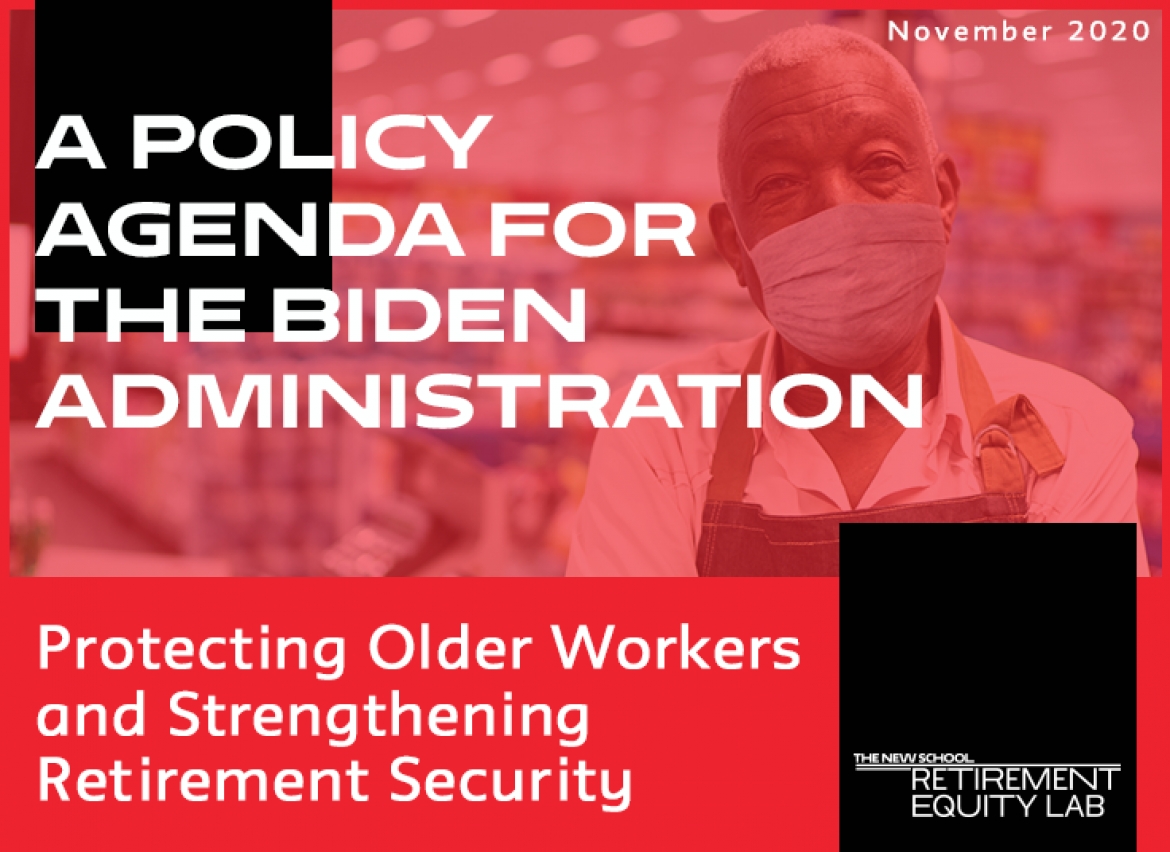SCEPA’s Retirement Equity Lab Announces a 10-Point Policy Agenda for the Biden Administration to Help Older Workers Recover from the PandemicPolicies Result from Research Documenting Older Workers' Slower Recovery and Increasing Forced Retirement and Downward Mobility |
New York, November 18, 2020 -- SCEPA's Retirement Equity Lab (ReLab) today released a 10-point policy agenda for the Biden administration to address older workers’ short-term needs in response to the pandemic and provide comprehensive reform to help prevent the retirement crisis. The current public health and economic crises leave older workers — especially older people of color and low-income seniors — more vulnerable in the labor market and more exposed to the systemic flaws in the retirement system. The report proposes policy reforms in 10 key areas:
"COVID-19 and the recession make clear that older workers face unique vulnerabilities in the labor market," said Teresa Ghilarducci, director of the Schwartz Center for Economic Policy Analysis. "As the fastest growing share of the labor market, our economy needs older workers. And as near-retirees, older workers need quality jobs that allow them to save for retirement. By enacting ReLab's 10-point policy agenda, the new Congress and the Biden Administration can ensure older workers' access to jobs and retirement while protecting our economy as a whole." Full report: A Policy Agenda for the Biden Administration – Protecting Older Workers and Strengthening Retirement Security |
|
Founded in 1919, The New School was established to advance academic freedom, tolerance, and experimentation. A century later, The New School remains at the forefront of innovation in higher education, inspiring more than 10,000 undergraduate and graduate students to challenge the status quo in design and the social sciences, liberal arts, management, the arts, and media. The university welcomes thousands of adult learners annually for continuing education courses and public programs that encourage open discourse and social engagement. Through our online learning portals, research institutes, and international partnerships, The New School maintains a global presence.
|
 |
MARKETING AND COMMUNICATION |
| 79 Fifth Avenue New York, NY 10003 www.newschool.edu |
PRESS RELEASE |
Media Contacts: The New School |
|
|
